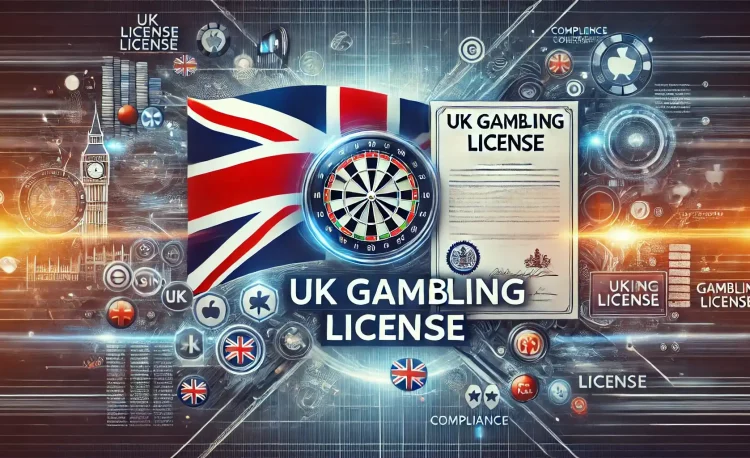The United Kingdom is known for its robust gambling industry, and operating within its framework requires adherence to strict regulations underpinned by responsible gambling policies. Obtaining a gambling licence in the UK is a rigorous process, designed to ensure the integrity of the industry and the protection of consumers. This informative guide will steer potential operators through the intricate process of securing a gambling licence, maintaining an impartial tone throughout.
Understanding the UK Gambling Commission
Before embarking on the application process, it is pertinent to understand the role of the UK Gambling Commission. Established under the Gambling Act 2005, this body is tasked with regulating commercial gambling activities in Great Britain. For anyone looking to offer gaming services to UK citizens, whether it be sports betting, casino games, bingo, or lotteries, approval from the Commission is a mandatory prerequisite.
The Commission’s objectives are threefold: to prevent gambling from becoming a source of crime or disorder, to ensure that gambling is conducted fairly and openly, and to protect children and vulnerable persons from being harmed or exploited by gambling. These objectives guide the licensing process and the ongoing oversight of licensed operators.
Preparation and Eligibility
The first steps towards obtaining a gambling licence involve a deep understanding of the UK market and a thorough preparation of all necessary documents and protocols. The eligibility criteria for a gambling licence are stringent. Operators must demonstrate financial stability, integrity, competence, and a commitment to responsible gambling practices.
It is essential to prepare a comprehensive business plan that outlines operational procedures, financial forecasts, and compliance strategies with the UK’s legislative framework. Background checks and due diligence will be carried out on all individuals involved with the operation, termed Personal Management License (PML) holders by the Commission.
Application Process: Detailed Steps
The application process for a UK gambling licence can be complex, and attention to detail is imperative. Below is an outline of the steps involved:
- Assess the type of gambling operation and the corresponding licence category – remote or non-remote, encompassing betting, bingo, casino, lottery, or gaming machine categories.
- Register an account on the UK Gambling Commission’s online portal.
- Collect and submit all necessary documentation, such as proof of identity, personal and financial references, and a detailed business plan.
- Pay the required application fee, which varies based on the type of licence and scale of the operation.
- Cooperate with the Commission during their assessment process, which may include further requests for information or clarification on submitted documents.
Ongoing Compliance and Conditions
Obtaining the licence is just the beginning of a regulated journey. Compliance with the terms of the licence is continuously monitored by the UK Gambling Commission, which sets out conditions and codes of practice for all operators. These pertain to financial auditing, reporting suspicious activities, advertising standards, and the provision of gambling software. Operators are also required to contribute to research, education, and treatment of gambling-related harms per the rules set by the Commission.
Moreover, the UK Gambling Commission is vigilant in enforcing compliance, with the power to review, impose penalties, or revoke licences if an operator fails to meet their obligations. Regular updates regarding the latest regulatory requirements must be heeded to maintain licensure.
Financial Considerations and Licensing Fees
The cost of a gambling licence varies according to the type and scale of the operation. The UK Gambling Commission provides a fee calculator to help businesses estimate the costs associated with their application. These fees are paid upon application and annually thereafter.
A table to illustrate some example costs:
| Licence Type | Initial Application Fee | Annual Fee (First Year) |
|---|---|---|
| Licence Type | Initial Application Fee | Annual Fee (First Year) |
| Remote Betting | £5,392 | £6,671 |
| Non-Remote Casino | £5,977 | £7,373 |
| Remote Bingo | £3,748 | £4,645 |
| Remote Casino | £9,647 | £14,647 |
| Remote Software | £2,640 | £3,547 |
Please note that these figures are approximate and subject to change. Applicants should consult the Commission’s website for the most current fee schedule.
Securing a gambling licence in the UK requires careful preparation, a thorough understanding of the regulatory framework, and a commitment to responsible gambling and consumer protection. It is a significant undertaking that demands attention to detail and meticulous planning. While complex, the process ensures that the gambling industry in the UK maintains high standards of operation and integrity.
At each step, from preparation to compliance, the key points to bear in mind include adhering to the objectives of the UK Gambling Commission, presenting a solid business case, committing to ongoing regulatory adherence, and budgeting for the various costs associated with obtaining and retaining a gambling licence.
In brief, as the gambling industry evolves, operators must stay abreast of changes and advancements. Whether it’s implementing advanced responsible gaming measures or understanding the implications of new legislation, operators are tasked with a dynamic responsibility. Lastly, while the primary aim of gambling is entertainment, operators should always encourage responsible play and remind consumers that gambling is about enjoyment rather than financial gain.
